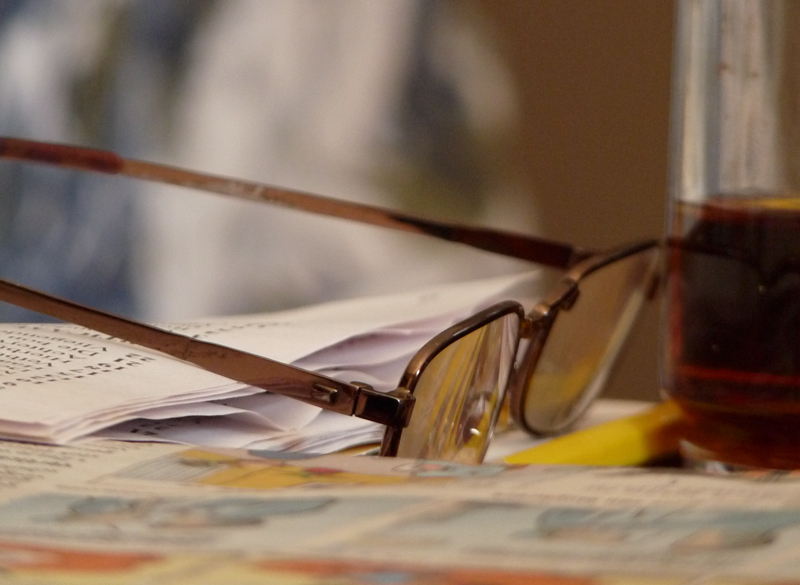Research has shown that the Veder Method can contribute to the well-being and behavior of residents of care homes. The method also has a positive effect on caregivers: job satisfaction increases because of more time spent on establishing contact between caregivers and residents.
Positive effects
Research has been carried out analyzing the effects of performances in care home living rooms. Not only are these performances put on by professional actors from Veder, but also by caregivers or activities coordinators who have been trained to use the Veder Method. During these interactive activities residents are being tempted into engaging in contact by providing different theatrical, musical and poetic stimuli. Other research has been carried out investigating job satisfaction in focus groups of caregivers. The research was done by Marijke van Haeften-van Dijk, supervised by Prof. Dr. R.M. Dröes (Alzheimer centre of VUmc) and Ass. Prof. Dr. J.C.M. van Weert (Amsterdam School of Communication Research, ASCoR). A short film was made presenting the results of the research. This film can be viewed on this webpage.

Prof. Dr. R.M. Dröes in the film:
“The fact that you can observe so many effects of this method is remarkable. You can really tell that when people have been to a Veder performance, afterwards they will continue to recollect memories, are more open to social contact and are more alert. This remains for at least two hours after the performance. That is really extraordinary.”
(video)
Articles
Several articles and reports have been written about the research, also in English:
“Does theatre improve the quality of life of people with dementia?” A. Marijke van Dijk, Julia C. M. van Weert and Rose-Marie Droes, International Psychogeriatric Association 2011
“Implementing living room theatre activities for people with dementia on nursing home wards: a process evaluation study” A. Marijke van Haeften-van Dijk, Julia C.M. van Weert & Rose-Marie Dröes, Aging & Mental Health 2014.
Every day care
A PhD study investigated the implementation of the Veder Method within everyday care activities. This research is based on the study protocol which was published in 2016. The results of this research “Person-centred communication with people with dementia living in nursing homes’ were published in 2017. The research was being carried out by Petra Boersma (Hogeschool InHolland, Amsterdam Domain Health, Sport and Well-being), supervised by Prof. Dr. R.M. Dröes (Alzheimer centre VU medical centre) and Ass. Prof. Dr. J.C.M. van Weert (Amsterdam School of Communication Research, ASCoR). Closely involved were organisations such as Alzheimer Nederland and V&VN (Society of Nurses and Carers The Netherlands).
During the research Petra Boersma compared 6 departments who were trained in the Veder Method to 6 departments with regular care. These departments were all of the same nursing home. A total of 136 caregivers and 134 residents with dementia participated in the research.
In health care, art forms like music and fine arts are more and more being used in the care for people with dementia. According to Petra Boersma the Veder Method is unique because of the implementation of theatrical communication. “The theatrical communication brings lightness and can therfor be helpful in situations that can be challenging for caregivers.” A much heard argument against methods like these are that they can be time consuming. The research shows the opposite: the Veder Method can be easily used on a day by day basis and does not cost any extra time. The research also showed that the method helped caregivers to get a better understanding of the mood and behaviour of residents. An unexpected advantage of the training was the positive contribution to the team building.
(video)
